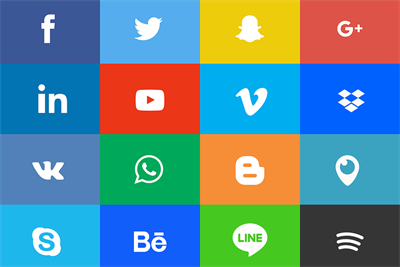Personal data. Two words that just 10 years ago felt boring and irrelevant are finding themselves at the centre of a media and societal storm.
Unless you’ve been blissfully disconnected from the developed world this past month, you’ll know Facebook has become the unfortunate poster child for the discussion around whether we want to share information about the way we live our lives, and perhaps more importantly still, whether we really understand when we are doing so.
The Cambridge Analytica-Facebook debacle puts a very personal issue in the spotlight on the proverbial eve of GDPR, the European Union’s pioneering data protection law, which comes into effect next month. Let’s also not forget there are a lot of other ad-supported services out there used by millions. The bigger question at hand, if you care to step away from the blistering heat of this current story, is how it’s driving a change in consumer mentality across Western society, and what that’ll mean for brands and advertisers.
People around me are an interesting mix of angry, activist, and apathetic. There are those who vanished in a #deletefacebook frenzy, and those evangelising for a disconnected life. And somewhere in the middle, there are those who don't seem to care, or understand.
For millions of Brits, news of the data our online behaviours reveal being used, stolen, or leaked (for clarity, data hacks the likes of which just happened to Under Armour's MyFitnessPal are not what we're talking about here) comes as a timely wake-up call as to the digital fingerprint we leave behind as we go about our daily lives. Could this fuel a revolt against "free" services, which are anything but?
The man commonly referred to as the father of virtual reality, Jaron Lanier, thinks it’s time to introduce pay-walling across the digital content and services we consume. And he makes a good point. There's plenty of precedent in the marketplace of users willing to pay for aspects of their digital lives: Spotify, Netflix, Deliveroo, The New York Times, Amazon Prime, et al. Lanier claims our obsession with the free-everything model is a relic of rebellious 60s counterculture and 90s socialism. However true that may be, it is more than an academic point when faced with the pragmatic question of how brands should anticipate the potential demise of the all-powerful ad-serving networks we've come to take for granted.
Practically speaking, there are three problems with a new paid-for-everything world order in the digital space:
1. Brands will fight hard to stop this from happening. Pretty understandable, since such an overnight change would result in the loss of major customer reach channels, creating the need to completely re-model digital strategies.
2. Guess who else doesn’t want this to happen? Platforms like Google, Facebook, and Twitter. They don’t want things to change because it’s going to be very hard to make anywhere near as much money from subscriptions as they do from adspend. Think about it: if Facebook makes £1m from Brand X’s adspend, and they charged every user £20 a year to use the platform, they’d need 50,000 users to cover that one brand’s one campaign. Some context? McDonald’s spent $1.46bn (£1.05bn) on ads in the US alone in 2016*, and if just 1% of this was spent on Facebook or Google, that equates to $14.6m.
3. A lot of product innovation is driven by advertising revenue, and future advertising potential.
There is also the small detail of many Brits simply not being able to afford the digital content and services they need to operate in today’s society. Zuckerberg alluded to this when recently asked whether Facebook would become a paid service (to which he responded "there will always be a version of Facebook that is free").
So if not pay-walled-everything, then what?
Stricter regulation is proposed by many as the right way forward. In the light of Brexit, who knows if and how GDPR (or equivalent) will be rolled out in Britain, but even if law-makers commit to this issue thoroughly we are often faced with politicians who do not have the depth of understanding needed to make choices about the way we conduct our digital lives. Moreover, these processes are lengthy, require debate, and as has been well shown this week by Facebook (as they move "responsibility" for 1.5bn users from Ireland to the U.S to escape GDPR), are not unescapable. Especially in a global economy where the services we love to use are oft operated from the other side of the ocean.
My preferred evolved model is one of sponsorship. Brands subsidise publishers and platforms, aligning their values without running ad units that rely on personal data being collected and compiled into "audiences". This is not dissimilar to when brands try to become content creators or distributors themselves (an often uphill battle), except here they relinquish the content creation to the pros who already have an audience.
For this to yield best results, sponsorship would be on the micro scale: individual articles, videos, or interviews supported by a brand who has affinity for the emotional cause of that piece. This patchwork patronage avoids smaller advertisers being priced out of ever appearing on larger networks, promotes healthy market dynamics, and means brands can trial partnerships and adapt accordingly, without having to make enormous commitments with large time and financial ramifications.
Ultimately, consumers are becoming increasingly sensitive to their personal data being used for targeted advertising. In this climate of change, it remains to be seen if platform-exodus will occur (initial rumblings predict it won’t), but this putative shifting of the sands only reinforces what many leading brands already know: that building deep emotional connections with their target audiences converts them to lifelong fans, and is a worthy approach that can take many forms, including, but most certainly not limited to, targeted advertising.
Gracie Page is creative technologist at Y&R London


